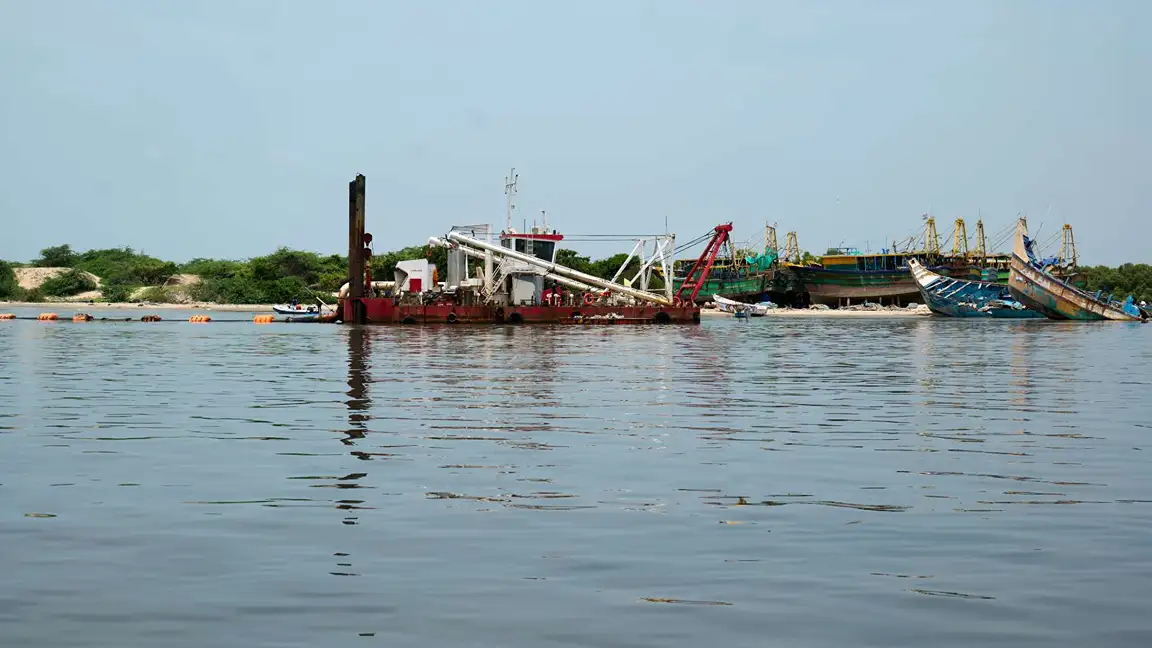Introduction
Recent reports of illegal dredging and sand extraction from Philippine coastal areas have sparked legal and environmental concerns, especially as these materials are allegedly used in disputed waters. The situation underscores the importance of enforcing national laws and protecting maritime zones. As the investigation continues, Philippine authorities have warned of serious legal consequences for those found violating existing mining and maritime statutes.
Overview of the Dredging Incident
Concerns arose after it was revealed that sand dredged from the Philippines may be supporting reclamation efforts in disputed waters, raising alarm over the country’s environmental and territorial security. These reclamation activities are reportedly taking place in areas where maritime sovereignty is contested, further complicating the issue.
Initial assessments suggest that large-scale dredging occurred without proper authorization or transparency. The situation has triggered a national response due to both its ecological impact and its implications for regional security.
Legal Framework Governing Dredging and Reclamation
The Philippines has long-standing laws in place to regulate resource extraction and maritime activity. Two primary laws apply directly to this case:
Republic Act 7942 – The Philippine Mining Act of 1995
This act regulates all aspects of mineral resource development. It mandates permits and environmental compliance for any dredging or extraction of sand and gravel. Unauthorized operations are considered illegal and are subject to sanctions.
Republic Act 120641 – The Philippine Maritime Zones Act
This law affirms national jurisdiction over maritime areas and enforces protections against unauthorized activity within these zones. It is particularly relevant in cases where disputed waters are involved, as it upholds the country’s sovereign rights.
Together, these laws aim to ensure responsible use of natural resources while defending national territory and environmental integrity.
Potential Legal Consequences for Violators
Officials have confirmed that those involved in the unauthorized dredging operations may face legal action. Possible consequences include:
- Criminal charges under both RA 7942 and RA 120641
- Hefty fines and penalties for environmental and maritime violations
- Confiscation of equipment and materials used in illegal operations
- Imprisonment, depending on the scale and impact of the offense
By targeting the individuals or groups responsible, authorities hope to deter future attempts to exploit coastal resources in disputed waters or protected areas.
Environmental and National Security Concerns
Illegal dredging not only disrupts coastal ecosystems but also undermines the country’s sovereignty when the materials support construction in disputed waters. Sediment removal damages marine habitats, leads to erosion, and threatens fisheries vital to local communities.
From a national security standpoint, using Philippine sand to support reclamation in contested areas challenges the country’s maritime claims and may weaken its standing in international diplomacy.
The dual impact—on the environment and on geopolitical stability—makes it essential for strict enforcement of dredging and maritime laws.
Government Response and Ongoing Investigation
In light of the allegations, authorities have launched an investigation involving multiple agencies tasked with environmental protection and national security. The probe aims to identify the individuals and operations behind the dredging activity and determine whether they were complicit in undermining Philippine interests in disputed waters.
While officials have not disclosed full details due to the sensitivity of the matter, they have confirmed that legal remedies will be pursued once all facts are gathered.
This swift response underscores the seriousness with which the government views the unauthorized exploitation of coastal and maritime resources.
Conclusion
The unauthorized dredging of sand for use in disputed waters poses serious legal, environmental, and geopolitical challenges. With robust laws like RA 7942 and RA 120641 in place, the Philippines is equipped to pursue those who violate its territorial integrity and ecological safeguards.
As the investigation unfolds, the nation watches closely. Upholding these laws is not only about punishing wrongdoers—it’s about defending sovereignty, preserving biodiversity, and maintaining long-term national security.
